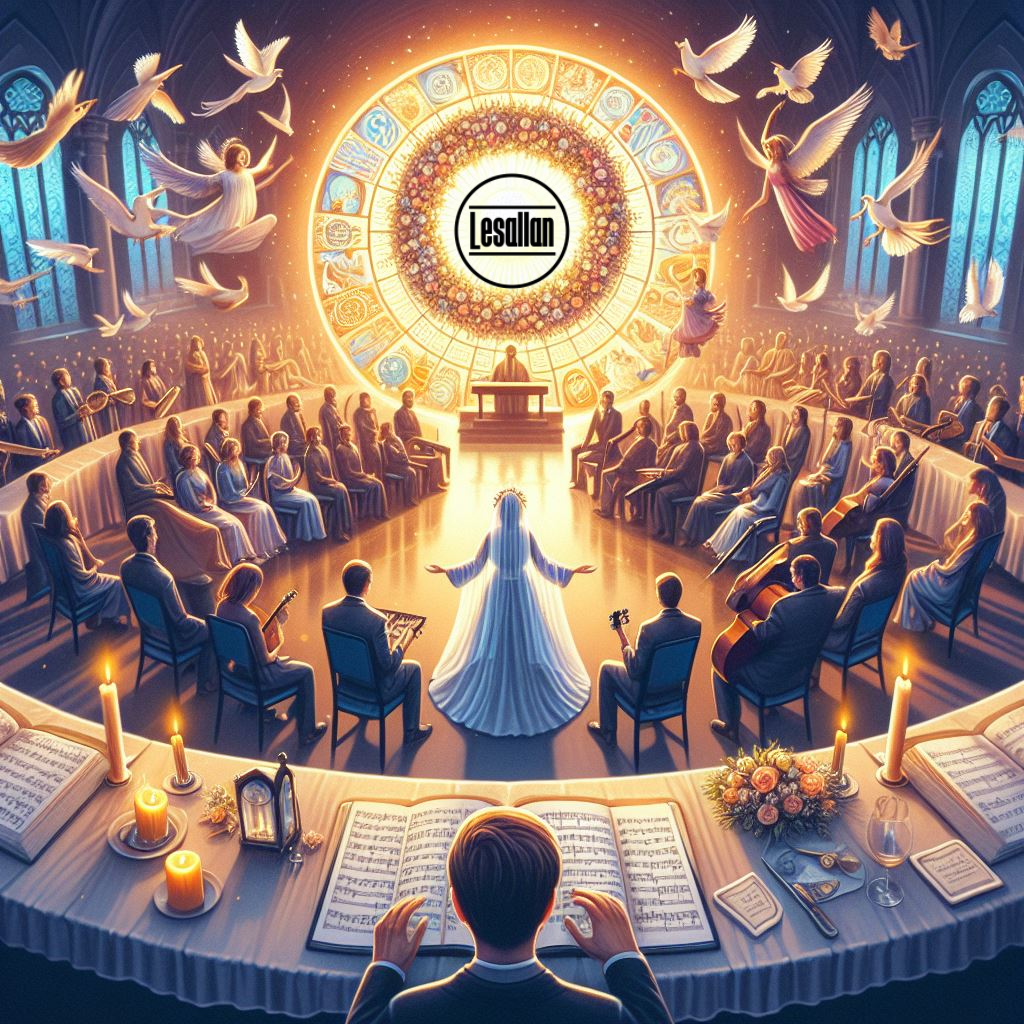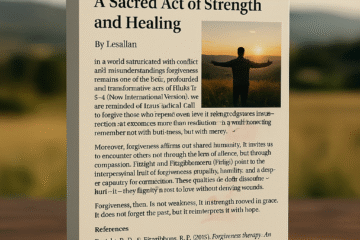Blessings on this Day, December 21, 2023
Lesallan

The Songs of Jesus – The Beginning and End
Several songs are mentioned in the Bible and are connected to the birth of Jesus. These are found in the Gospel of Luke:
Mary’s Song (Luke 1:46-56): Also known as the Magnificat, Mary sings this song after her cousin Elizabeth, who was expecting a child in her old age, blesses her. Zechariah’s Song (Luke 1:67-79): Zechariah, the Father of John the Baptist, sings this song after his son’s birth. The Angels’ Song (Luke 2:13-14): This song is sung by many heavenly hosts, praising God at the birth of Jesus. Simeon’s Song (Luke 2:29-32): Simeon, a righteous and devout man waiting for Israel’s consolation, sings this song when he sees the baby Jesus in the temple. These songs often reflect traditional Christmas carols and hymns we sing today. Please note that these songs were not necessarily sung at the moment of Jesus’ birth but are closely associated with the events surrounding His birth.
Jesus before His Death:
Jesus and his disciples sang the Hallel, a section of the Old Testament found in Psalm 113-118. This portion of scripture is traditionally sung throughout the Passover meal. This was the same meal Jesus partook of with His disciples on His final night in the upper room just before they went to the Mount of Olives to pray. The Hallel (Hallelujah) includes psalms of praise and thanksgiving to God.
If you were to read the Hallel, this is what you will find:
At the Last Supper:
Psalm 113 is a psalm that praises God. It is an introduction to the themes of other psalms that follow it. Psalm 114 reflects on how God saved his people from slavery in Egypt and led them to freedom in the Promised Land. This is a picture of how God will rescue His people from the bondage of sin to freedom in Him. Psalms 115-118 look forward to God’s eternal salvation for his people. They are also known as Messianic psalms. Psalm 115 tells us to keep looking for salvation in God. It reminds us that God’s people will praise Him forever. Have you ever read Psalm 116? It is a fascinating chapter about Jesus and the cup of salvation He drank from during the Last Supper. It is a powerful testament to His sacrifice and love for us. It is a symbol of Jesus’ sacrifice for our sins. Before Jesus could “let his cup pass,” he had to drink deeply from it. Jesus obeyed the Father to the point of death. Psalm 117 is short but powerful. It speaks of God calling all nations to salvation in Jesus. Psalm 118 is concluding. The crowds in Jerusalem sang this psalm during Passover when Jesus entered Jerusalem on a donkey. Jesus presented himself as the Prince of Peace by riding on a donkey. The crowd recognized this symbolism and declared the Hallel. Psalm 118 declares that Jesus is our salvation, but it also says that the people will reject him.
Here are some songs that are commonly sung in 2023 to commemorate Jesus’ birth, death, and resurrection:
After Jesus’ Birth (Christmas/Advent):
“O Come, O Come, Emmanuel” by The Petersens
“Christmas Time Is Here (Vocal)” by Vince Guaraldi Trio
“O Come All Ye Faithful” by Paul Baloche
“Come, Thou Long Expected Jesus” by Red Mountain Music
“It Came Upon a Midnight Clear” by Frank Sinatra
After Jesus’ Death (Good Friday):
“Names” by Tiffany Hudson
“Same God” by Elevation Worship
“God is in This Story” by Katy Nichole & Big Daddy Weave
“You Have Been There” by David Ashley Trent
“Heaven” by Brittany Price Brooker and Tim Brummel
After Jesus’ Resurrection (Easter):
“In Christ Alone”
“Because He Lives”
“Living Hope”
“This Is Our God”
“Sunday Is Coming” (Wednesday went bad).
It is important to note that the songs sung during religious events may vary depending on the church, denomination, and personal preference. The examples mentioned above are just a few of the many beautiful songs used to commemorate significant events in the Christian faith. I hope you enjoy the music! 🎵
Blessings on this Day December 21, 2023
Lesallan



